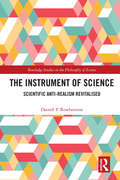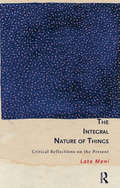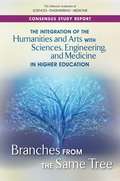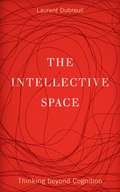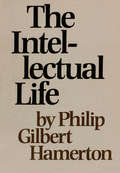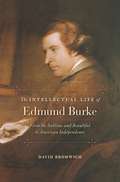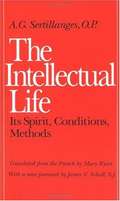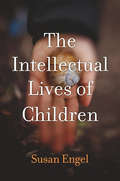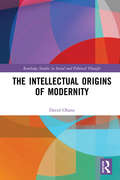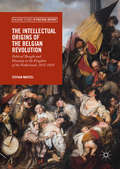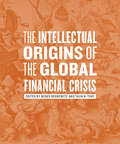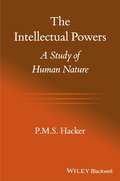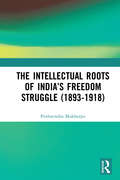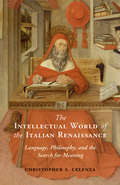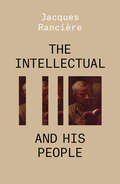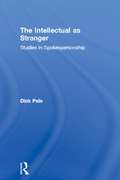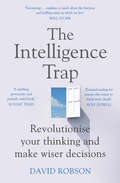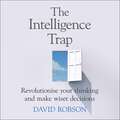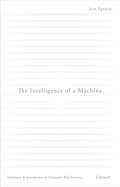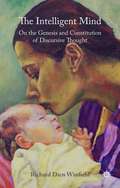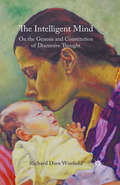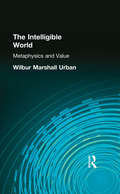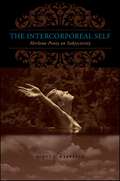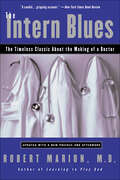- Table View
- List View
The Instrument of Science: Scientific Anti-Realism Revitalised (Routledge Studies in the Philosophy of Science)
by Darrell P. RowbottomRoughly, instrumentalism is the view that science is primarily, and should primarily be, an instrument for furthering our practical ends. It has fallen out of favour because historically influential variants of the view, such as logical positivism, suffered from serious defects. In this book, however, Darrell P. Rowbottom develops a new form of instrumentalism, which is more sophisticated and resilient than its predecessors. This position—‘cognitive instrumentalism’—involves three core theses. First, science makes theoretical progress primarily when it furnishes us with more predictive power or understanding concerning observable things. Second, scientific discourse concerning unobservable things should only be taken literally in so far as it involves observable properties or analogies with observable things. Third, scientific claims about unobservable things are probably neither approximately true nor liable to change in such a way as to increase in truthlikeness. There are examples from science throughout the book, and Rowbottom demonstrates at length how cognitive instrumentalism fits with the development of late nineteenth- and early twentieth-century chemistry and physics, and especially atomic theory. Drawing upon this history, Rowbottom also argues that there is a kind of understanding, empirical understanding, which we can achieve without having true, or even approximately true, representations of unobservable things. In closing the book, he sets forth his view on how the distinction between the observable and unobservable may be drawn, and compares cognitive instrumentalism with key contemporary alternatives such as structural realism, constructive empiricism, and semirealism. Overall, this book offers a strong defence of instrumentalism that will be of interest to scholars and students working on the debate about realism in philosophy of science.
The Integral Nature of Things: Critical Reflections on the Present
by Lata ManiThe world is an interdependent whole of which everything is an integral, complexly related, part. Yet current ways of thinking, and being, persistently separate social phenomena and the individual self from the multiple dimensions with which they are interconnected. The Integral Nature of Things examines this revealing paradox and its consequences in a variety of sites: everyday language, labour, advertising, technology, post-structuralist theory, political rhetoric, urban planning, sex, neoliberal globalisation. Mani demonstrates how even though the interrelations between things are obscured by the ruling paradigm, the facts of relationality and indivisibility continually assert themselves. The book interweaves prose with poetry and sociocultural analysis with observational accounts to offer an alternative framework for addressing aspects of the cognitive, cultural, political, and ethical crisis we face today.
The Integration of the Humanities and Arts with Sciences, Engineering, and Medicine in Higher Education: Branches From The Same Tree
by Engineering Medicine National Academies of SciencesIn the United States, broad study in an array of different disciplines —arts, humanities, science, mathematics, engineering— as well as an in-depth study within a special area of interest, have been defining characteristics of a higher education. But over time, in-depth study in a major discipline has come to dominate the curricula at many institutions. This evolution of the curriculum has been driven, in part, by increasing specialization in the academic disciplines. There is little doubt that disciplinary specialization has helped produce many of the achievement of the past century. Researchers in all academic disciplines have been able to delve more deeply into their areas of expertise, grappling with ever more specialized and fundamental problems. Yet today, many leaders, scholars, parents, and students are asking whether higher education has moved too far from its integrative tradition towards an approach heavily rooted in disciplinary “silos”. These “silos” represent what many see as an artificial separation of academic disciplines. This study reflects a growing concern that the approach to higher education that favors disciplinary specialization is poorly calibrated to the challenges and opportunities of our time. The Integration of the Humanities and Arts with Sciences, Engineering, and Medicine in Higher Education examines the evidence behind the assertion that educational programs that mutually integrate learning experiences in the humanities and arts with science, technology, engineering, mathematics, and medicine (STEMM) lead to improved educational and career outcomes for undergraduate and graduate students. It explores evidence regarding the value of integrating more STEMM curricula and labs into the academic programs of students majoring in the humanities and arts and evidence regarding the value of integrating curricula and experiences in the arts and humanities into college and university STEMM education programs.
The Intellective Space: Thinking beyond Cognition (Posthumanities #32)
by Laurent DubreuilThe Intellective Space explores the nature and limits of thought. It celebrates the poetic virtues of language and the creative imperfections of our animal minds while pleading for a renewal of the humanities that is grounded in a study of the sciences.According to Laurent Dubreuil, we humans both say more than we think and think more than we say. Dubreuil&’s particular interest is the intellective space, a space where thought and knowledge are performed and shared. For Dubreuil, the term &“cognition&” refers to the minimal level of our mental operations. But he suggests that for humans there is an excess of cognition due to our extensive processing necessary for verbal language, brain dynamics, and social contexts. In articulating the intellective, Dubreuil includes &“the productive undoing of cognition.&”Dubreuil grants that cognitive operations take place and that protocols of experimental psychology, new techniques of neuroimagery, and mathematical or computerized models provide access to a certain understanding of thought. But he argues that there is something in thinking that bypasses cognitive structures. Seeking to theorize with the sciences, the book&’s first section develops the &“intellective hypothesis&” and points toward the potential journey of ideas going beyond cognition, after and before computation. The second part, &“Animal Meditations,&” pursues some of the consequences of this hypothesis with regard to the disparaged but enduring project of metaphysics, with its emphasis on categories such as reality, humanness, and the soul.
The Intellectual Life
by Philip Gilbert HamertonThis classic exploration of the intellectual life has fully retained its unique value since initial publication in 1904, and it is a distinct satisfaction to present it for the pleasure and edification of discerning readers. No subsequent work fully compares to this rare mixture of personal insight, ethics, taste, psychology, and common sense. Philip Gilbert Hamerton bestowed upon it his long experience as a writer and artist, his enviable breadth of knowledge, and his elegance of literary style. The result is a remarkable work, expressing intimately the mind and personality of the author, yet universal in its application to all those with a love of intellectual pursuits. The publisher takes a great deal of pleasure in offering this work to the public.
The Intellectual Life
by Philip Gilbert HamertonThis classic exploration of the intellectual life has fully retained its unique value since initial publication in 1904, and it is a distinct satisfaction to present it for the pleasure and edification of discerning readers. No subsequent work fully compares to this rare mixture of personal insight, ethics, taste, psychology, and common sense. Philip Gilbert Hamerton bestowed upon it his long experience as a writer and artist, his enviable breadth of knowledge, and his elegance of literary style. The result is a remarkable work, expressing intimately the mind and personality of the author, yet universal in its application to all those with a love of intellectual pursuits. The publisher takes a great deal of pleasure in offering this work to the public.
The Intellectual Life of Edmund Burke: From The Sublime And Beautiful To American Independence
by David BromwichThis intellectual biography examines the first three decades of Burke's professional life. His protest against the cruelties of English society and his criticism of all unchecked power laid the groundwork for his later attacks on abuses of government in India, Ireland, and France.
The Intellectual Life: Its Spirit, Conditions, Methods
by A. G. Sertillanges Mary RyanThis is above all a practical book. It discusses with a wealth of illustration and insight such subjects as the organization of the intellectual worker's time, materials, and his life; the integration of knowledge and the relation of one's specialty to general knowledge; the choice and use of reading; the discipline of memory; the taking of notes, their classification and use; and the preparation and organization of the final production.
The Intellectual Lives of Children
by Susan EngelA look inside the minds of young children shows how we can better nurture their abilities to think and grow.Adults easily recognize children’s imagination at work as they play. Yet most of us know little about what really goes on inside their heads as they encounter the problems and complexities of the world around them. In The Intellectual Lives of Children, Susan Engel brings together an extraordinary body of research to explain how toddlers, preschoolers, and elementary-aged children think. By understanding the science behind how children observe their world, explain new phenomena, and solve problems, parents and teachers will be better equipped to guide the next generation to become perceptive and insightful thinkers.The activities that engross kids can seem frivolous, but they can teach us a great deal about cognitive development. A young girl’s bug collection reveals important lessons about how children ask questions and organize information. Watching a young boy scoop mud can illuminate the process of invention. When a child ponders the mystery of death, we witness how children build ideas. But adults shouldn’t just stand around watching. When parents are creative, it can rub off on their children. Engel shows how parents and teachers can stimulate children’s curiosity by presenting them with mysteries to solve.Unfortunately, in our homes and schools, we too often train children to behave rather than nurture their rich and active minds. This focus is misguided, since it is with their first inquiries and inventions—and the adult world’s response to them—that children lay the foundation for a lifetime of learning and good thinking. Engel offers readers a scientifically based approach that will encourage children’s intellectual growth and set them on the path of inquiry, invention, and ideas.
The Intellectual Origins of Modernity (Routledge Studies in Social and Political Thought)
by David OhanaThe Intellectual Origins of Modernity explores the long and winding road of modernity from Rousseau to Foucault and its roots, which are not to be found in a desire for enlightenment or in the idea of progress but in the Promethean passion of Western humankind. Modernity is the Promethean passion, the passion of humans to be their own master, to use their insight to make a world different from the one that they found, and to liberate themselves from their immemorial chains. This passion created the political ideologies of the nineteenth century and made its imprint on the totalitarian regimes that arose in their wake in the twentieth. Underlying the Promethean passion there was modernity—humankind's project of self-creation—and enlightenment, the existence of a constant tension between the actual and the desirable, between reality and the ideal. Beneath the weariness, the exhaustion and the skepticism of post-modernist criticism is a refusal to take Promethean horizons into account. This book attests the importance of reason, which remains a powerful critical weapon of humankind against the idols that have come out of modernity: totalitarianism, fundamentalism, the golem of technology, genetic engineering and a boundless will to power. Without it, the new Prometheus is liable to return the fire to the gods.
The Intellectual Origins of the Belgian Revolution: Political Thought and Disunity in the Kingdom of the Netherlands, 1815-1830 (Palgrave Studies in Political History)
by Stefaan MarteelThis book explores the political ideas of the Belgian Revolution of 1830, which led to the break-up of the Restoration state of the ‘united’ Kingdom of the Netherlands. It uncovers the origins of liberalism and political Catholicism in the Southern Netherlands in the wake of the French Revolution, and traces the development of political language in the context of the tensions between the Northern and Southern part of the united Netherlands. It shows how differences in ‘Dutch’ and ‘Belgian’ political and intellectual history resulted in different understandings of essential political concepts such as ‘sovereignty’ and ‘balance of powers’, as well as of the nature of the constitutional order of 1815. Finally, it traces the emergence of Belgian nationalism within the discourse of opposition against the government. Stefaan Marteel therefore provides a fresh perspective on the intellectual background of the rise of the nation-state in the nineteenth century.
The Intellectual Origins of the Global Financial Crisis
by Roger Berkowitz and Taun N. ToayCommentary on the financial crisis has offered technical analysis, political finger pointing, and myriad economic and political solutions. But rarely do these investigations reach beyond the economic and political causes of the crisis to explore their underlying intellectual grounds. The essays in this volume delve deeper into the cultural and intellectual foundations, philosophical ideas, political traditions, and economic movements that underlie the greatest financial crisis in nearly a century. Moving beyond traditional economic and political scienceapproaches, these essays engage thinkers from Hannah Arendt to Max Weber and Adam Smith to Michel Foucault.With Arendt as a catalyst, the authors probe the philosophical as well as the cultural origins of the great recession. Orienting the volume is Arendt’s argument that past financial crises and also totalitarianism are rooted, at least in part, in the tendency for capital to expand its reach globally without regard to political and moral borders or limits. That politics is made subservient to economics names a cultural transformation that, in the spirit of Arendt, guides these essays in making sense of our present world.Including articles, interviews, and commentary from leading scholars and business executives, this volume offers views that are as diverse as they are timely. By reaching beyond “how” the crisis happened to “why” the crisis happened, the authors re-imagine the recent financial crisis and thus provide fresh thinking about how to respond.
The Intellectual Powers
by P. M. HackerThe Intellectual Powers is a philosophical investigation into the cognitive and cogitative powers of mankind. It develops a connective analysis of our powers of consciousness, intentionality, mastery of language, knowledge, belief, certainty, sensation, perception, memory, thought, and imagination, by one of Britain's leading philosophers. It is an essential guide and handbook for philosophers, psychologists, and cognitive neuroscientists.The culmination of 45 years of reflection on the philosophy of mind, epistemology, and the nature of the human personNo other book in epistemology or philosophy of psychology provides such extensive overviews of consciousness, self-consciousness, intentionality, mastery of a language, knowledge, belief, memory, sensation and perception, thought and imaginationIllustrated with tables, tree-diagrams, and charts to provide overviews of the conceptual relationships disclosed by analysisWritten by one of Britain's best philosophical mindsA sequel to Hacker's Human Nature: The Categorial FrameworkAn essential guide and handbook for all who are working in philosophy of mind, epistemology, psychology, cognitive science, and cognitive neuroscience
The Intellectual Roots of India’s Freedom Struggle (1893-1918)
by Prithwindra MukherjeeMost people believe India’s struggle for independence to have begun with Mahatma Gandhi. Little credit goes to the proof that this call for a mass movement did not arise out of a void. For the past century and more, historians have overlooked the phase of twenty-five years of intense creative endeavour preceding and preparing for the Mahatma’s advent. The reason for this systematic omission has been the fundamentally radical nature of the revolutionary programme put to practice by Indian leaders of late nineteenth and early twentieth centuries. Jugantar was diametrically distinct from the dream of non-violence floated by the Mahatma and the Congress. Very well documented with inputs from Indian, European and American archives, the present study carefully straightenes out the origins – philosophical, historical and religious and intellectual, so to say – of Indian nationalism. From Rammohun to Sri Aurobindo, passing through Marx and Tagore, the full set of ideological views has been analysed here. Unknown up to this day, the sustained focus in this volume on the outlook and the activities of these revolutionaries inside India and abroad brings home the ‘very sophisticated understanding of the contemporary political reality’ that made their leader Jatindranath Mukherjee, the ‘right hand man’ of Sri Aurobindo, the very emblem of an epoch and its aspirations. Please note: Taylor & Francis does not sell or distribute the Hardback in India, Pakistan, Nepal, Bhutan, Bangladesh and Sri Lanka
The Intellectual World of the Italian Renaissance: Language, Philosophy, and the Search for Meaning
by Celenza Christopher S.In this book, Christopher Celenza provides an intellectual history of the Italian Renaissance during the long fifteenth century, from c. 1350-1525. His book fills a bibliographic gap between Petrarch and Machiavelli and offers clear case studies of contemporary luminaries, including Leonardo Bruni, Poggio Bracciolini, Lorenzo Valla, Marsilio Ficino, Angelo Poliziano, and Pietro Bembo. Integrating sources in Italian and Latin, Celenza focuses on the linked issues of language and philosophy. He also examines the conditions in which Renaissance intellectuals operated in an era before the invention of printing, analyzing reading strategies and showing how texts were consulted, and how new ideas were generated as a result of conversations, both oral and epistolary. The result is a volume that offers a new view on both the history of philosophy and Italian Renaissance intellectual life. It will serve as a key resource for students and scholars of early modern Italian humanism and culture.
The Intellectual and His People: Staging the People Volume 2
by Jacques RanciereFollowing the previous volume of essays by Jacques Rancière from the 1970s, Staging the People: The Proletarian and His Double, this second collection focuses on the ways in which radical philosophers understand the people they profess to speak for. The Intellectual and His People engages in an incisive and original way with current political and cultural issues, including the "discovery" of totalitarianism by the "new philosophers," the relationship of Sartre and Foucault to popular struggles, nostalgia for the ebbing world of the factory, the slippage of the artistic avant-garde into defending corporate privilege, and the ambiguous sociological critique of Pierre Bourdieu. As ever, Rancière challenges all patterns of thought in which one-time radicalism has become empty convention.
The Intellectual as Stranger: Studies in Spokespersonship (Routledge Studies in Social and Political Thought #Vol. 30)
by Dick PelsThe Intellectual as Stranger explores the historical association between images of the intellectual and those of the stranger, or the outsider to society. Using detailed case-studies, Pels examines the ambiguous strangerhood of political intellectuals such as Marx, Durkheim, Sorel, Freyer and Hendrik de Man.
The Intelligence Trap: Revolutionise your Thinking and Make Wiser Decisions
by David RobsonHow was a brilliant physics professor tricked into carrying 2kg of cocaine across the Argentinian border? Why do doctors misdiagnose 10 to 15% of their patients? Why do Nobel Prize winners spread fake news?We assume that smarter people are less prone to error. But greater education and expertise can often amplify our mistakes while rendering us blind to our biases. This is the 'intelligence trap'. Drawing on the latest behavioural science and historical examples from Socrates to Benjamin Franklin, David Robson demonstrates how to apply our intelligence more wisely; identify bias and enhance our 'rationality quotient'; read and regulate our emotions; fine-tune our intuition; navigate ambiguity and uncertainty; and think more flexibly about seemingly intractable problems.The twenty-first century presents us with complex problems that demand a wiser way of thinking. Whether you are a NASA scientist or a school student, The Intelligence Trap offers a new cognitive toolkit to realise your full potential.
The Intelligence Trap: Revolutionise your Thinking and Make Wiser Decisions
by David RobsonAn eye-opening examination of the stupid things smart people do-and how to cultivate skills to protect ourselves from error.'As a rule, I have found that the greater brain a man has, and the better he is educated, the easier it has been to mystify him,' Houdini to Arthur Conan DoyleSmart people are not only just as prone to making mistakes as everyone else-they may be even more susceptible to them. This is the "intelligence trap," the subject of David Robson's fascinating and provocative debut. Packed with cutting-edge research, historical case studies, entertaining stories, and practical advice, The Intelligence Trap explores the flaws in our understanding of intelligence and expertise, and reveals the ways that even the brightest minds and talented organizations can backfire - from some of Thomas Edison's worst ideas to failures at NASA, Nokia, and the FBI. With a knack for explaining complex ideas and featuring timeless lessons from Socrates to Benjamin Franklin to Richard Feynman and the latest behavioral science, Robson shows how to build a cognitive toolkit to avoid mistakes and protect ourselves from misinformation and fake news.(P)2019 Hodder & Stoughton Limited
The Intelligence of a Machine (Univocal)
by Jean EpsteinThe advent of the cinema radically altered our comprehension of time, space, and reality. With his experience as a pioneering avant-garde filmmaker, Jean Epstein uses the universes created by the cinematograph to deconstruct our understanding of how time and space, reality and unreality, continuity and discontinuity, determinism and randomness function both inside and outside the cinema. Time, he says, should be regarded as the first, not the fourth, dimension—and the cinematograph allows us, for the first time, to manipulate it in directions and speeds of our choosing.The theoretical work of Jean Epstein greatly influenced later generations of cinema philosophers, notably Gilles Deleuze and Jacques Rancière, but the bulk of his work remains unpublished. The Intelligence of a Machine, his first major title published in English, is one of the earliest philosophies of cinema.
The Intelligent Mind: On the Genesis and Constitution of Discursive Thought
by Richard Dien WinfieldThe Intelligent Mind.
The Intelligent Mind: On the Genesis and Constitution of Discursive Thought
by Richard Dien WinfieldThe Intelligent Mind conceives the psychological reality of thought and language, explaining how intelligence develops from intuition to representation and then to linguistic interaction and thinking. Overcoming the prevailing dogmas regarding how discursive reason emerges, this book secures the psychological possibility of the philosophy of mind.
The Intelligible World: Metaphysics and Value
by Wilbur Marshall UrbanFirst published in 2002. Routledge is an imprint of Taylor & Francis, an informa company.
The Intercorporeal Self: Merleau-Ponty on Subjectivity (SUNY series in Contemporary French Thought)
by Scott L. MarrattoChallenging a prevalent Western idea of the self as a discrete, interior consciousness, Scott L. Marratto argues instead that subjectivity is a characteristic of the living, expressive movement establishing a dynamic intertwining between a sentient body and its environment. He draws on the work of the French philosopher Maurice Merleau-Ponty, contemporary European philosophy, and research in cognitive science and development to offer a compelling investigation into what it means to be a self.
The Intern Blues: The Timeless Classic About the Making of a Doctor
by Robert MarionThe classic “gripping account” of three young doctors in training at a New York City hospital, updated with a new preface and afterword (The New York Times Book Review).While supervising a small group of interns at a major New York medical center, Dr. Robert Marion asked three of them to keep a careful diary over the course of a year. Andy, Mark, and Amy vividly describe their real-life lessons in treating very sick children; confronting child abuse and the awful human impact of the AIDS epidemic; skirting the indifference of the hospital bureaucracy; and overcoming their own fears, insecurities, and constant fatigue. Their stories are harrowing and often funny; their personal triumph is unforgettable.This updated edition of The Intern Blues includes a new preface from the author discussing the status of medical training in America today and a new afterword updating the reader on the lives of the three young interns who first shared their stories with readers more than a decade ago.“Thought-provoking, informative.” —Publishers Weekly‘The diary format effectively dramatizes the often-agonizing decisions and compromises that are made in the face of sleepless nights and inexperience . . . an important book for anyone contemplating the long, arduous task of becoming a doctor.” —Library Journal
